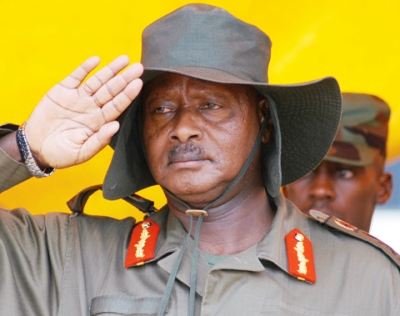CPJ concerned over media restrictions ahead of Uganda’s elections
February 16, 2016 (KAMPALA) – The Committee to Protect Journalists (CPJ) has expressed concerns of tactics used by the Ugandan government to stifle media freedom, citing arbitrary closure of stations which host the country’s opposition political figures, threats to journalists seen as being critical of the ruling party, and physical assaults.

“They don’t always have to jail you or close you down,” Haruna Kanaabi, the executive secretary of the Independent Media Council, told CPJ.
“Instead, a few well-placed calls to senior editors at state-owned media houses and intense pressure on the proprietors of privately owned media have served to yield rampant self-censorship and created an environment of fear and uncertainty in newsrooms in addition as well to the more coercive measures,” he added.
Uganda, CPJ said, has one of the more vibrant media environments in the region, with around 10 daily and weekly newspapers and dozens of radio stations.
But they operate in a setting where dissent is tolerated only up to a point, and attempts to highlight corruption among the authorities or present news that casts the government in negative light attracts swift sanction, it added.
According to the media campaign group, on February 4, two campaigners, Sam Ozinda and Charles Adubango, were arrested at their homes a few days after holding a mini exhibition of cartoons in Nebbi district to highlight what they said was the loss of money donated by the Uganda Wildlife Authority for a fencing project for several schools in the area. They were accused of defamation and spreading false information against a powerful government official hailing from the region, but were released on bond.
On February 6, CPJ further said in its report, two British Broadcasting Corporation (BBC) journalists were arrested at the Abim hospital in northern part of Uganda for filming its facilities “without authorisation.”
The medical facility, located in a remote part of the country, gained national attention following an earlier visit by opposition leader Kizza Besigye sought to highlight what he described as its deplorable conditions.
Godfrey Mutabazi, the executive director of the Uganda Communications Commission, told CPJ in an interview that said the authorities were acting not to shield the incumbent from criticism, but to preserve the peace.
“We have laws which we must implement. We don’t want to go through a situation like Rwanda where hundreds of thousands died all in the name of freedom of expression,” he said.
The official, while speaking to CPJ, dismissed allegations of crackdowns on media outlets seen as critical of government and those that host opposition.
“That’s not true. In any case, how do you know my affiliation? I might be a supporter of the opposition. I’m just implementing the law as it stands,” he stressed.
A 2015 Freedom House report showed Uganda’s press freedom environment improved slightly in 2014 as journalists registered some progress in expanding access to information by successfully challenging a magistrate’s order for closed court proceedings.
It however, said journalists in Uganda continued to face intimidation and harassment from state and non-state actors, which at times engendered self-censorship.
(ST)
